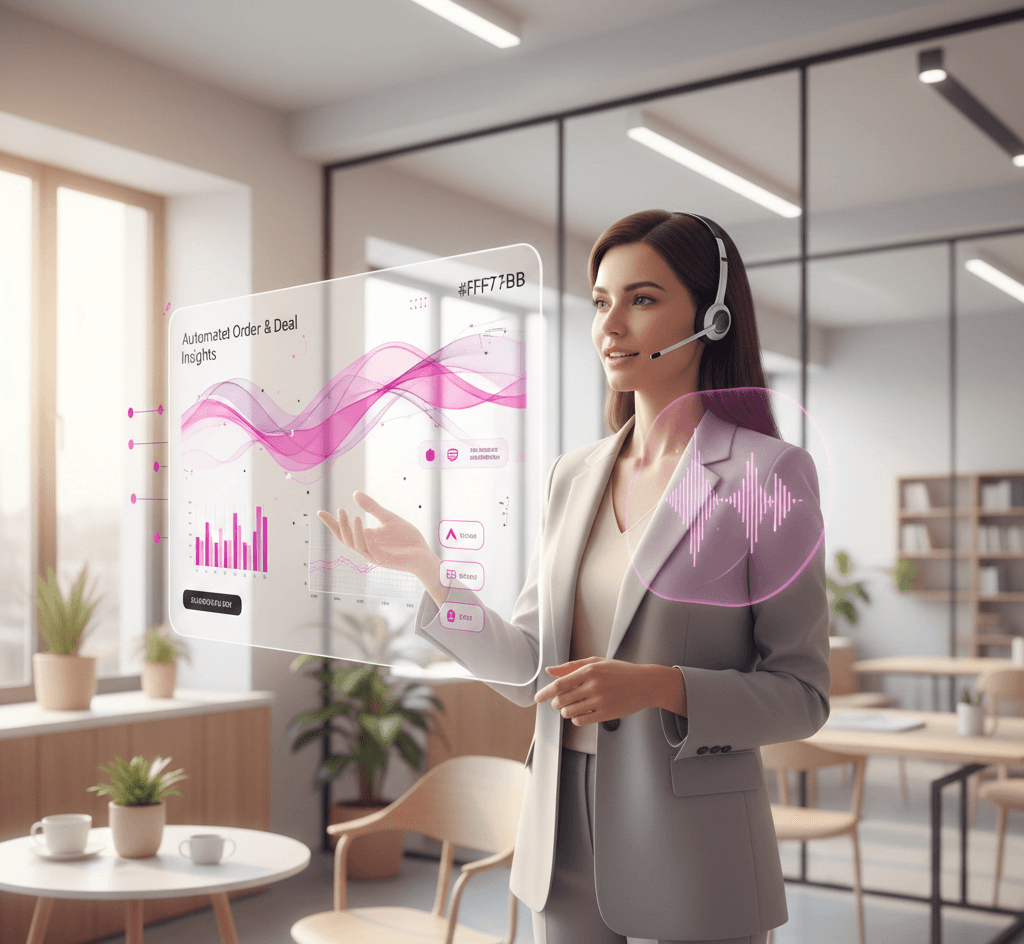“Learn how AI sales agents and SalesCloser AI can optimize your sales strategy with tips, tricks, and best practices for better lead scoring and automation.”
In the fast-paced sales world, leveraging technology is essential for staying ahead of the competition. Enter AI sales agents—powerful tools that help streamline processes, enhance customer interactions, and drive more sales. Among the frontrunners in this space is SalesCloser AI, an innovative platform offering various features to help sales teams optimize their efforts. This blog will explore tips, tricks, and best practices for using AI sales agents effectively, with a spotlight on SalesCloser AI.
What is an AI Sales Agent?
An AI sales agent is a software tool that uses artificial intelligence to automate various aspects of the sales process. This includes lead generation, customer engagement, data analysis, and even closing deals. AI sales agents analyze vast amounts of data to identify patterns and provide insights, enabling sales teams to make informed decisions quickly. By automating routine tasks, these agents allow human sales reps to focus on more complex and strategic activities.
Tips and Tricks for Using AI Sales Agents
1. Integrate Seamlessly with Your CRM
For AI sales agents to be effective, they need access to your CRM system. This integration allows the AI to access customer data, track interactions, and provide valuable insights. For example, SalesCloser AI integrates smoothly with various CRM platforms, making it easier to centralize information and streamline workflows. Always ensure your CRM is up-to-date and data entry is consistent to maximize the AI’s efficiency.
2. Leverage AI for Lead Scoring
One of the standout features of AI sales agents is their ability to score leads based on various factors such as behavior, engagement, and demographic data. This helps prioritize leads, ensuring sales reps focus on prospects with the highest potential. SalesCloser AI, for example, offers advanced lead-scoring capabilities that can predict which leads are most likely to convert. Utilize this feature to allocate resources more effectively and increase conversion rates.
3. Automate Follow-Ups
Timely follow-ups are crucial in sales, but they can be time-consuming. AI sales agents can automate this process by sending personalized emails or messages based on the lead’s interactions and preferences. This ensures that no lead slips through the cracks. SalesCloser AI can schedule follow-ups and even craft messages that align with the lead’s interests, increasing the chances of a positive response.
4. Use AI for Data-Driven Decision Making
AI sales agents excel at analyzing data and providing actionable insights. Use these insights to inform your sales strategy, such as identifying which products or services are most popular or which marketing channels are most effective. SalesCloser AI provides detailed analytics and reports to help you make data-driven decisions, from adjusting pricing strategies to refining marketing campaigns.
5. Personalize Customer Interactions
Personalization is critical to building strong customer relationships. AI sales agents can help by analyzing customer data to understand their preferences and behavior. Use this information to tailor your communication and offers. For example, SalesCloser AI can recommend products or services based on a customer’s past purchases or browsing history, making your interactions more relevant and engaging.
6. Train Your Sales Team on AI Tools
Even the most advanced AI tools are only as effective as those using them. Ensure that your sales team is well-trained in how to use the AI sales agent. This includes understanding how to interpret the AI’s insights and integrate them into their daily workflow. SalesCloser AI offers training and support resources to help your team get up to speed quickly.
7. Monitor and Optimize Performance
Regularly review the performance of your AI sales agent to ensure it meets your goals. Monitor key metrics such as lead conversion rates, customer engagement, and sales growth. Use this data to identify areas for improvement and make necessary adjustments. SalesCloser AI provides real-time analytics and performance tracking, making it easier to optimize your sales processes.
Best Practices for Implementing AI Sales Agents
Start with a Clear Goal
Before implementing an AI sales agent, define your goals. Whether you want to increase sales, improve lead conversion rates, or enhance customer satisfaction, having a clear goal will guide your use of the technology and help you measure success.
Ensure Data Quality
AI sales agents rely heavily on data to function effectively. Ensure that your data is accurate, complete, and up-to-date. This includes customer information, interaction history, and sales data. Data quality can lead to correct insights and effective strategies.
Focus on High-Impact Areas
Identify areas where an AI sales agent can have the most significant impact. This might include lead scoring, follow-up automation, or customer segmentation. Start implementing AI in these areas and gradually expand its use as you become more comfortable with the technology.
Maintain Human Oversight
While AI sales agents are powerful tools, they should not replace human judgment. Always maintain human oversight to ensure the AI’s recommendations align with your business goals and values. Sales reps should use AI to enhance their capabilities, not as a replacement for their expertise.
Continuously Update and Improve
AI technology is constantly evolving. Stay up-to-date with the latest advancements and updates to your AI sales agent. This includes taking advantage of new features, integrating with other tools, and continuously training your team.
Conclusion
AI sales agents, such as SalesCloser AI, offer powerful tools for optimizing the sales process. By integrating these agents into your CRM, leveraging lead scoring, automating follow-ups, and using data-driven insights, sales teams can enhance their efficiency and effectiveness. Training, monitoring, and maintaining human oversight are crucial to ensuring these tools deliver the best results. As technology evolves, staying informed and continuously improving your AI tools will keep you ahead in the competitive sales landscape.
Frequently Asked Questions (FAQs)
What is SalesCloser AI?
SalesCloser AI is an AI-powered sales platform that helps sales teams automate and optimize various aspects of the sales process. It offers features like lead scoring, follow-up automation, personalized customer interactions, and data-driven insights.
How does SalesCloser AI integrate with CRM systems?
SalesCloser AI integrates with various CRM systems through APIs, allowing seamless data exchange. This integration enables the AI to access customer data, track interactions, and provide valuable insights to sales teams.
Can SalesCloser AI help with follow-up automation?
Yes, SalesCloser AI can automate follow-ups by scheduling emails or messages based on the lead’s interactions and preferences. This helps ensure timely communication and improves the chances of converting leads.
Is AI replacing human sales reps?
No, AI is not replacing human sales reps. Instead, it complements their work by automating routine tasks and providing insights that help reps make informed decisions. Human oversight and expertise remain crucial in the sales process.
How can I ensure data quality for my AI sales agent?
To ensure data quality, regularly update and clean your CRM data, including customer information, interaction history, and sales records. Ensure consistency in data entry and consider using data validation tools to maintain accuracy.
What kind of training is required to use SalesCloser AI?
Training typically involves understanding SalesCloser AI’s features and functionalities, interpreting its insights, and integrating these insights into daily workflows. SalesCloser AI offers training and support resources to help teams get up to speed.
How often should I review the performance of my AI sales agent?
Review your AI sales agent’s performance regularly to ensure it meets your goals. This can be done monthly or quarterly, depending on your business needs. Use performance metrics and analytics provided by the AI to identify areas for improvement.






